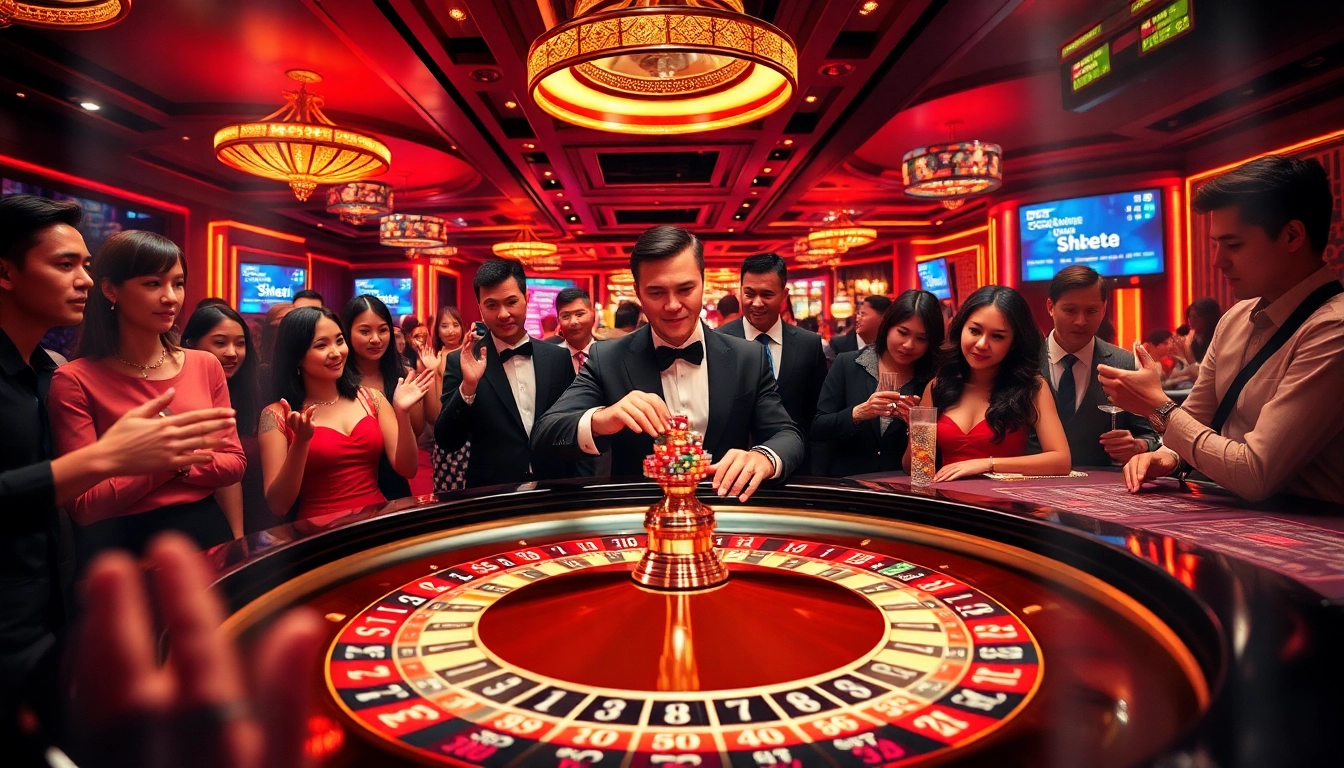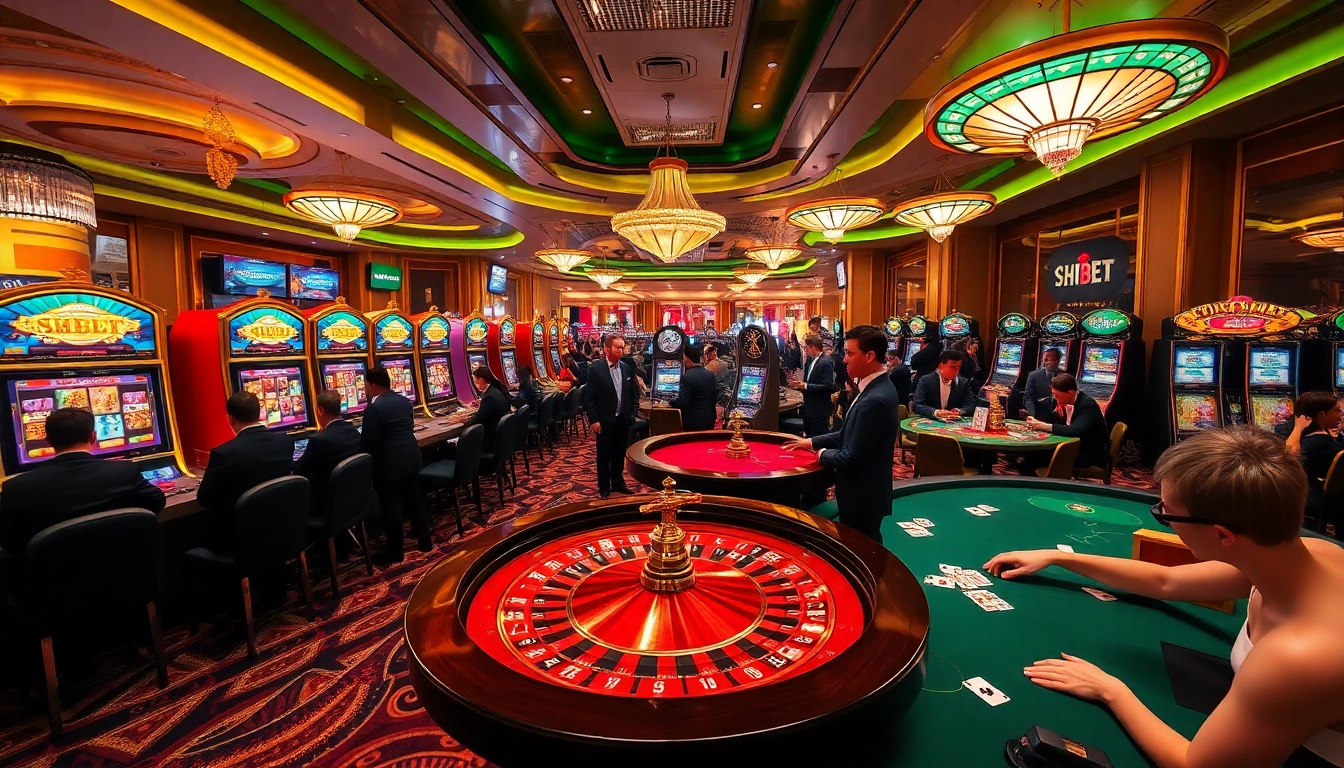Gambling has enchanted people for decades, luring participants into its vibrant world filled with risk and thrill. The attraction of gambling games transcends mere entertainment; it taps into our innate desires, playing on our feelings and psychological vulnerabilities. Whether it’s the spin of a roulette wheel or the clattering of video slot machines, the thrill of potentially hitting the jackpot creates an intoxicating atmosphere that draws in millions.
Realizing the mental aspects behind why we engage in gambling games reveals much about our conduct as people and as a community. Factors such as the thrill of the unknown, the social aspect of gaming, and the allure of escape from everyday life contribute to the popular popularity of these activities. In this investigation, we will explore the drivers that drive people to gamble in hopes of winning big, uncovering the deeper psychological elements at play.
A Allure of Luck
The thrill of uncertainty is a major appeal of gaming games. Players are often fascinated by the possibility that a small bet could result in a momentous fortune. This unpredictability creates an excitement rush, as each rotation of the wheel or roll of the cubes holds the promise for thrills and gain. The notion that a couple instants of luck could change one’s financial status is enticing, motivating individuals to take risks they might shy away from in other areas of life.
Mentally, engaging in gambling can serve as a form of escape. Many individuals look for refuge from their daily stresses and challenges, and the vibrant atmosphere of a gambling establishment provides a short-term diversion. The blinking lights, sounds of games, and the social interactions enhance this sensation, creating an environment where players can immerse themselves in dreams and hope. This charm of chance allows participants to temporarily break free from their lives, drawn by the mere chance of get rich.
Furthermore, the concept of luck taps into our natural urge for power over fate. Numerous gamblers believe that they can affect outcomes through tactics, intuition, or even chance. This fantasy of control can be motivating, making games more engaging. The blend of hope, uncertainty, and the chance of winning fuels a powerful cycle that keeps individuals returning to the gaming floor, eager to test their luck once more.
The Function of Reward Mechanisms
The appeal of gambling games is substantially shaped by the psychological mechanisms of reinforcement systems in the mind. As players interact with games of chance, their brains secrete dopamine, a neurotransmitter associated with pleasure and reinforcement. This neurochemical response strengthens the idea that success is a possibility, provoking excitement and anticipation. Thus, even the simple act of participating can elicit emotions of exhilaration, making the event itself fundamentally satisfying, irrespective of the result.
Gambling environments are meticulously designed to amplify these incentive interactions. Bright lights, lively colors, and engaging sounds create an enveloping atmosphere that captivates players. These sensual stimuli serve to intensify the affective responses associated with success and failure, making each game feel like an unavoidable challenge. The frequent rewards of minor wins motivates gamers to keep playing, fostering a cycle of involvement that can lead to prolonged gaming periods. This intentionally crafted atmosphere takes advantage on the brain’s reward circuitry, pulling gamers deeper into the gambling activity.
Furthermore, the concept of variable reinforcement plays a significant role in betting behavior. Unlike set outcomes, the unpredictability of results in gambling gaming results to a heightened feeling of excitement. Players are often driven by the hope of winning a big win or obtaining unexpected rewards. This uncertainty keeps individuals to play longer, as they chase the thrill of the next possible gain. The combination of immediate rewards from minor wins and the allure of bigger, less frequent payouts creates a strong incentive structure that drives individuals to return to the casino repeatedly.
Psychological Impact of Gambling Addiction
Gambling compulsion has significant mental effects that can distort an individual’s understanding of reality and impact their emotional well-being. Individuals may undergo strong emotions of excitement and joy while playing, leading to a deceptive feeling of control over their fate. This deception of power can create a loop where the individual constantly chases setbacks, thinking that a big win is just around the corner. As a result, they may participate in hazardous behaviors, gambling larger amounts than they can bear, which only exacerbates their circumstance.
As gambling becomes a central focus in a person’s life, it often brings to noticeable changes in actions and disposition. Many endure nervousness, melancholy, and emotions of alienation as they prioritize betting over connections, work, and obligations. The secrecy and dishonesty often linked to gambling can further alienate individuals from their family, leading to a breakdown in dialogue and confidence. This seclusion from social networks adds to the stress, creating a negative spiral that can be difficult to escape.
Ultimately, the mental toll of wagering compulsion can have lasting effects beyond just financial loss. Individuals may battle with poor self-worth, regret, and embarrassment, which can hinder their ability to get assistance. May88 surrounding gambling dependency can also stop individuals from reaching out, worsening powerlessness. Understanding these mental effects is essential for developing useful avoidance and treatment strategies, enabling those affected to regain power of their lives and rediscover a better connection with risk and reward.


Leave a Reply